 Petzlover
Petzlover Australian Kelpie is originated from Australia but Kangal Dog is originated from Turkey. Australian Kelpie may grow 34 cm / 13 inches shorter than Kangal Dog. Australian Kelpie may weigh 43 kg / 94 pounds lesser than Kangal Dog. Both Australian Kelpie and Kangal Dog has same life span. Australian Kelpie may have less litter size than Kangal Dog. Both Australian Kelpie and Kangal Dog requires Moderate Maintenance.
Australian Kelpie is originated from Australia but Kangal Dog is originated from Turkey. Australian Kelpie may grow 34 cm / 13 inches shorter than Kangal Dog. Australian Kelpie may weigh 43 kg / 94 pounds lesser than Kangal Dog. Both Australian Kelpie and Kangal Dog has same life span. Australian Kelpie may have less litter size than Kangal Dog. Both Australian Kelpie and Kangal Dog requires Moderate Maintenance.
 The energetic Kelpie came into being around 1870, with this working dog breed having a role to play with the herding of sheep in the harsh Australian outback.The sheep and wool industry in Australia has always been big business, and Australian ranchers were looking for a tough dog that could cope with sheep but also cope with the harsh environment.
The energetic Kelpie came into being around 1870, with this working dog breed having a role to play with the herding of sheep in the harsh Australian outback.The sheep and wool industry in Australia has always been big business, and Australian ranchers were looking for a tough dog that could cope with sheep but also cope with the harsh environment.
These are adaptable dogs too and their ancestors include the Coley or Collie, a British herding-type dog, the English- and the Australian Shepherd and the Dingo. In fact it is believed that up to 4% of their genes comes from the Dingo. These adaptable dogs were also brought to North America where they quickly adapted to the different climate and different livestock.
The Australian Kelpie isn’t your regular pet as they are essentially an outdoor, working dog. They are recognized today by the United Kennel Club and registered by the North American Australian Kelpie Registry.
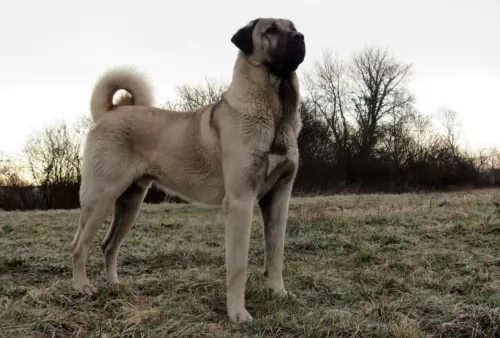 The magnificent looking Kangal Shepherd Dog, a purebred Mastiff type dog, is often referred to as a sheep dog and hails from the Sivas province of Turkey.
The magnificent looking Kangal Shepherd Dog, a purebred Mastiff type dog, is often referred to as a sheep dog and hails from the Sivas province of Turkey.
The Kangal Dog is a distinct breed and the National Dog of Turkey. These are working dogs who made their appearance in the UK in 1965.
It is interesting to note that in June 2018 the Turkish Kennel Club, Köpek Irklari ve Kinoloji Federasyonu, classifies Kangal Shepherd Dogs to be the same population as the Anatolian Shepherd dog.
 The Kelpie is a medium-sized dog with a coat that comes in a number of colours – black, chocolate, fawn, red, blue, tan, white and gold. . The nose colour blends in with the dog’s coat colour and can be black, brownish and even pinkish.
The Kelpie is a medium-sized dog with a coat that comes in a number of colours – black, chocolate, fawn, red, blue, tan, white and gold. . The nose colour blends in with the dog’s coat colour and can be black, brownish and even pinkish.
The Kelpie has a medium-length tail which is low-set. The ears are pricked, giving the dog an intelligent, alert appearance. The dog’s head is also narrow and long, and his eyes are bright and inquisitive.
The Australian Kelpie has an athletic appearance, with a body which is longer than their height, similar to that of a German Shepherd. Because the Australian Kelpie is such an energetic, active breed, he’ll need plenty of ‘jobs to do’, lots of ball games and other exercise to keep him free from boredom and to ensure he maintains his lithe, lean, muscular limbs.
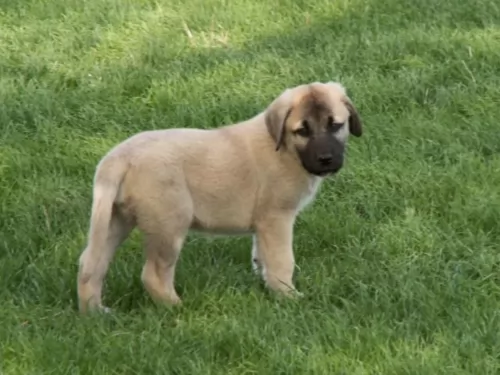 This is a large, heavily boned dog with a big head with a black mask and medium sized floppy ears. Looking at him, he has a Mastiff-like appearance but isn't as heavy as some Mastiff breeds, allowing it more speed and agility.
This is a large, heavily boned dog with a big head with a black mask and medium sized floppy ears. Looking at him, he has a Mastiff-like appearance but isn't as heavy as some Mastiff breeds, allowing it more speed and agility.
He stands at roughly 72cm to 85cm male and female, and weighs about 50 to 63kg. He has a solid double coat of dense hair which is a pale tan color.The coat is short and dense. The Kangal Dog is powerful and when he is alert, the long tail is held over the back, otherwise he holds it down with a slight curl.
The Kangal is known for his good looks, but he is also alert, sharp, territorial and confident, while also being calm. These dogs have an instinctive wariness of strange dogs and they are also reserved with strangers but are loving, loyal and protective with their human family.
In fact, the Kangal Shepherd Dog is protective while being gentle with small children and animals. He is an intelligent breed too, and having him trained and socialized won’t be a problem.
It is always a wise move to have a big dog like this trained and socialized, making him obedient and even more amicable than he already is.
 The Australian Kelpie is an active, busy, intelligent, loving breed who is highly protective of his human family. He gets on well with children and other pets in the home but you’ll want him trained if you want him to be gentle around children and smaller pets. He does tend to gravitate towards one particular family member as his ‘favourite’ though.
The Australian Kelpie is an active, busy, intelligent, loving breed who is highly protective of his human family. He gets on well with children and other pets in the home but you’ll want him trained if you want him to be gentle around children and smaller pets. He does tend to gravitate towards one particular family member as his ‘favourite’ though.
Your Kelpie won't do well in an apartment as he is a working dog who wants plenty of place to run and play. If he is bored, it manifests itself with constant barking. Make sure to provide a stimulating, active lifestyle for your Australian Kelpie, provide him with everything a dog needs and you’ll be rewarded with a devoted and loyal companion.
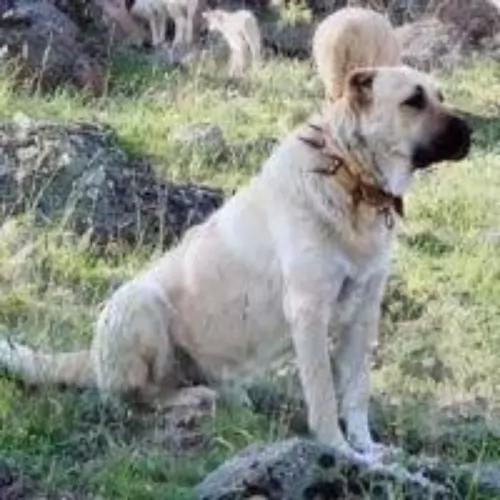 Your Kangal Dog is a big, powerful dog. His very size size won't suit him living in the city in small spaces and tiny gardens. He is far better suited to life in the suburbs or to country life where he can move around easily.
Your Kangal Dog is a big, powerful dog. His very size size won't suit him living in the city in small spaces and tiny gardens. He is far better suited to life in the suburbs or to country life where he can move around easily.
In spite of his size, he is a calm, balanced, independent, protective dog. He may well be aloof towards strangers, but a trained and well-socialized Kangal Dog is friendly, loving and loyal pet with his human family and with visitors to the house.
This is a beautiful dog and it will be an honor to have such a wonderful pet in your home. Treat him well and you're bound to have the most fantastic protector, guardian and friend.
 Your Australian Kelpie is a hardy breed and you won’t find many health problems with him. Yes, every dog is susceptible to illnesses which are common with all dog breeds, and these are illnesses such as hip dysplasia and cryptorchidism.
Your Australian Kelpie is a hardy breed and you won’t find many health problems with him. Yes, every dog is susceptible to illnesses which are common with all dog breeds, and these are illnesses such as hip dysplasia and cryptorchidism.
You will need to check your Kelpie out for eye disease such as PRA or Progressive Retinal Atrophy, a group of genetic diseases which are found in some breeds of dogs. This can lead to cataracts and blindness.
Health problems in your Australian Kelpie can certainly be partially prevented by the way you feed your dog and by the environment you provide him with. Every dog has the potential to develop genetic health problems, but as we’ve said, the Kelpie is a generally healthy breed.
Always find a reputable breeder whose focus is on breeding healthy dogs and who can provide certification that the parents of the dog are clear of defects and are in tip-top condition for breeding.
Along with quality food and fresh water, getting your puppy vaccinated is hugely important. Australian Kelpie puppy shots will protect your new 4-legged family member from the likes of distemper, parvovirus and hepatitis. Your puppy will also need additional booster vaccinations after his first shots which start at around 8 weeks of age.
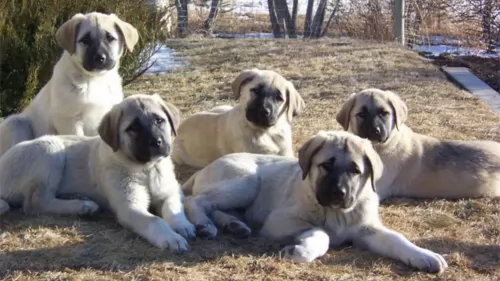 This is most important if you don't intend your Kangal Dog becoming a parent, and is good for the health of your dog.
This is most important if you don't intend your Kangal Dog becoming a parent, and is good for the health of your dog.
Your Kangal Dog puppy needs certain vaccinations at certain stages of his life to prevent him from getting some life threatening dog diseases. Keep a check on your dog's health and realize, that although the Kangal Dog is a healthy dog breed, he can develop canine illnesses such as eye diseases, ear infections, bloat, skin allergies and hip dysplasia among others.
Your dog may then require veterinary intervention to heal him of any of these.
To keep your pet happy and healthy, make sure to pick up your dog's faeces every day. This is for your own health's sake too.
 Australian Kelpies are low maintenance and their coat is easy to groom and maintain. You want to give him a good brush twice a week to get rid of loose hair. Australian Kelpies are moderate shedders.
Australian Kelpies are low maintenance and their coat is easy to groom and maintain. You want to give him a good brush twice a week to get rid of loose hair. Australian Kelpies are moderate shedders.
It is important to get your puppy off on the right foot to avoid health problems later on. Homemade dog food which includes chicken, rice and vegetables is always the best food for your dog. If you can't prepared your own meals for your Kelpie, top grade commercial dog food brands are recommended.
When looking at dog foods, remember that your Kelpie is a working dog – a naturally active breed and you’ll need to look at dog food which has been specially formulated for active dogs. Every dog will need raw meat in their diet if you want to avoid a dog with an itchy, flaky skin, a dog with poor energy levels and a dog that has no resistance to infection.
Every owner who cares for their dog will provide him with socialization and training. The Australian Kelpie is an intelligent breed who responds well to training.
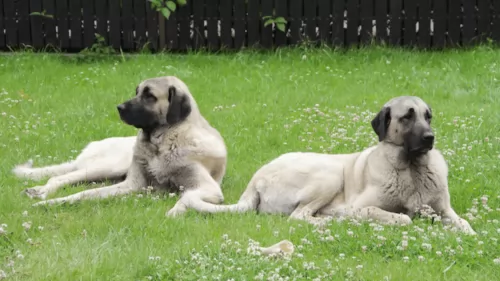 The Kangal Dog can be a wonderful pet in your home, but because you’ve made the decision to bring him into your home, it becomes your responsibility to ensure his happiness and wellbeing.
The Kangal Dog can be a wonderful pet in your home, but because you’ve made the decision to bring him into your home, it becomes your responsibility to ensure his happiness and wellbeing.
These ‘care’ tips can help you, particularly if you’re a first time dog owner -
Remember that a puppy will need 4 meals a day of soft, recommended puppy food. By the time your dog reaches his first birthday, one or two meals a day will be good.
There are some top quality commercial manufactured foods to choose from, and the packaging labeling will guide you to which one.
Adding in some home-made food such as nutritious cooked chicken, rice and vegetables will be a treat for your pet and don’t forget some raw meat occasionally too.
Fresh, cool water should be within reach of your pet around the clock.
Dogs need exercise to maintain their lean bodies but it will also stimulate their minds and keep them healthy. The exercise needs of your dog will depend on his size, age, health and breed type. Fun and games as well as daily walks will satisfy your Kangal Dog and keep him content.
Help keep your Kangal Dog looking groomed and cared for. He is a fairly heavy, seasonal shedder. Remove loose hairs with brushing the coat twice a week. Check for fleas and ticks at the same time and for any unusual lumps.
Every dog needs a warm, dry, quiet place to rest and sleep, inside and outside. Make sure that when your dog is outside that he has a place to rest in the shade and sun, as he chooses.